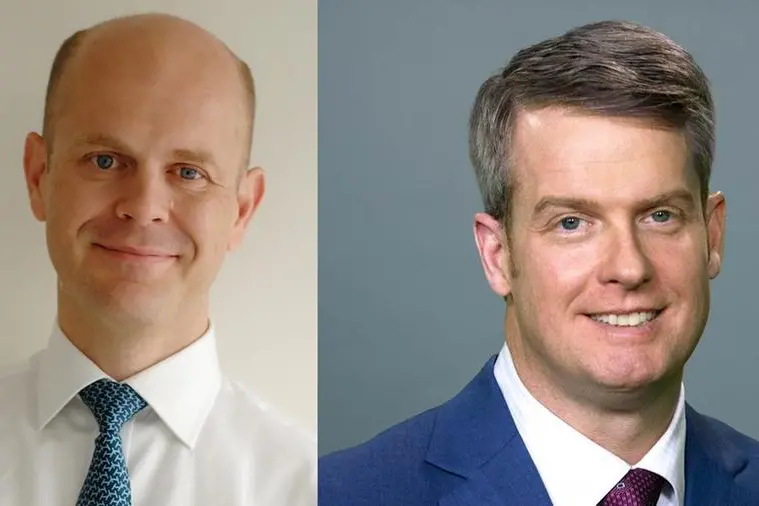PHOTO
The Chicago-based derivatives exchange CME Group Inc., which identifies Dubai as one of its biggest growth markets, is looking to expand its operations in the UAE.
The exchange operator, which has been operating in the Dubai International Financial Market (DIFC), last year acquired a license to operate in Abu Dhabi Global Market.
“Witnessing the rapid growth of the financial services sector in the UAE, we are looking to grow our investment in Abu Dhabi and Dubai as well as use it as a springboard into other MENA markets,” said Michel Everaert, Managing Director and Head of EMEA in a recent interview with Zawya.
The CME Group along with Dubai Holding and the Oman Investment Authority are core partners in the Dubai Mercantile Exchange, which trades the influential Oman crude oil futures contract.
In addition, DIFC's recently disclosed plans to attract several hedge funds to set up in the business hub is also likely to drive local activity for CME.
"With around 50 hedge funds expected to establish a presence in the UAE this year alone, we expect more traders and portfolio managers making investment decisions and accessing our exchange and trading our products from the region," said Everaert.
CME Group is made up of four exchanges—CME, CBOT, NYMEX and COMEX—and offers a range of global benchmarks across all major asset classes, including futures, options, interest rates, stock indexes, foreign exchange, and commodities which clients use to manage risk.
2022 was a tumultuous year for companies and investors. The Russian invasion of Ukraine, the resultant commodity shortages caused by sanctions imposed on Russia, and the US Federal Reserve's ongoing battle against decades-high levels of inflation through a series of monetary tightening measures, all added to the uncertainty. The volatility, however, meant that CME turned in a record year of business as clients turned to derivatives—futures and options contracts –to hedge risks.
Tim McCourt, CME’s Senior Managing Director and Global Head of Equity and Foreign Exchange Products said last year saw growth across all segments globally.
"I believe we did 22.3 million futures and options contracts per day, which was up 19% versus 2021, with over 19 million contracts coming from the financial side of the portfolio. We also had a very strong year for options with a little over 4 million options contracts. We've seen growth across all segments, across the globe," he said.
The Nasdaq-listed exchange operator reported its FY 2022 total revenue at $5 billion and net income at $2.7 billion.
The MENA market saw growth of around 50% versus last year and was one of CME's fastest-growing regions outside of the US, McCourt said. He declined a query about a breakdown of figures.
On cryptocurrency
CME, which has developed cryptocurrency products since first launching Bitcoin Reference Rate in 2016, believes the crypto market isn't going away soon, “although it's hard to predict where it is headed in the future”. The exchange saw a record of over 207,000 contracts in the first week of November, when the ecosystem was upended by the collapse of the FTX crypto exchange.
"We're a regulated venue offering regulated products and that is a central value proposition for our cryptocurrency offering. We believe regulation is a feature and not a bug of cryptocurrency and (regulation) provides the certainty and the trust for participants to get involved," said McCourt, who thinks there is tremendous enthusiasm in the region for crypto assets.
The CME honchos are bullish about UAE's efforts to broaden and deepen the capital markets in Dubai and Abu Dhabi, as they believe the Emirati cities are perfectly located geographically—at the crossroads between Asia, Europe and Africa—to be able to do so.
"To have that market activity centre in the UAE, halfway between Asia and Europe, allows financial markets to start off in Asia, service the needs of the MENA region and then roll into Europe and on to the US. And so, I think having a major financial centre in the region is a hugely valuable addition for global financial markets,” said Everaert.
Among CME's offerings that are of interest to the region are products that align with ESG (environment, social and governance) standards and energy transition.
The UAE and other GCC countries have committed to net zero goals and government- related companies and corporates are racing to reduce their carbon footprint.
Emissions offset
CME has launched three emissions and carbon offset futures that help companies buy and sell carbon credits.
"A carbon emission offset project might typically be in South America, Africa or Asia, and so if you're a local firm seeking to offset your emissions in the region you are exposed to global pricing and the global market for emissions offsets, that's what our futures cater for. So, while CME futures are not a local product, they are very locally relevant to achieve net zero goals," said Everaert.
Another tool of interest to companies setting up to manufacture batteries for electric vehicles is the EV battery futures suite, which allows them to manage the risk associated with fluctuating prices for key inputs like cobalt, lithium and copper.
"If you want to make sure that you're locking in your purchasing costs for those materials you can use futures to ensure your input costs aren't going to rise to such an extent that you're unprofitable or uncompetitive."
The exchange operator also administers term Secured Overnight Financing Rate (SOFR), the replacement for dollar Libor, which transitioned from CME's Eurodollar contracts.
Term SOFR futures, which move in tandem with the Fed rate, serve as instruments for setting short-term interest rates as well as for hedging rates.
"This is massively relevant for the global economy, and certainly here in the region where many currencies are pegged to the US dollar," said Everaert.
(Reporting by Brinda Darasha; editing by Seban Scaria)




















